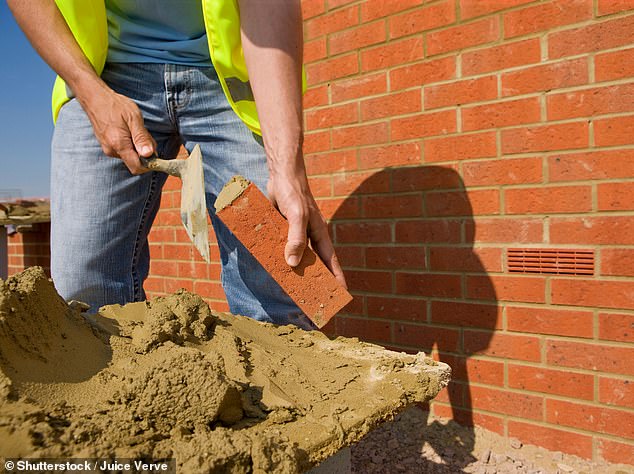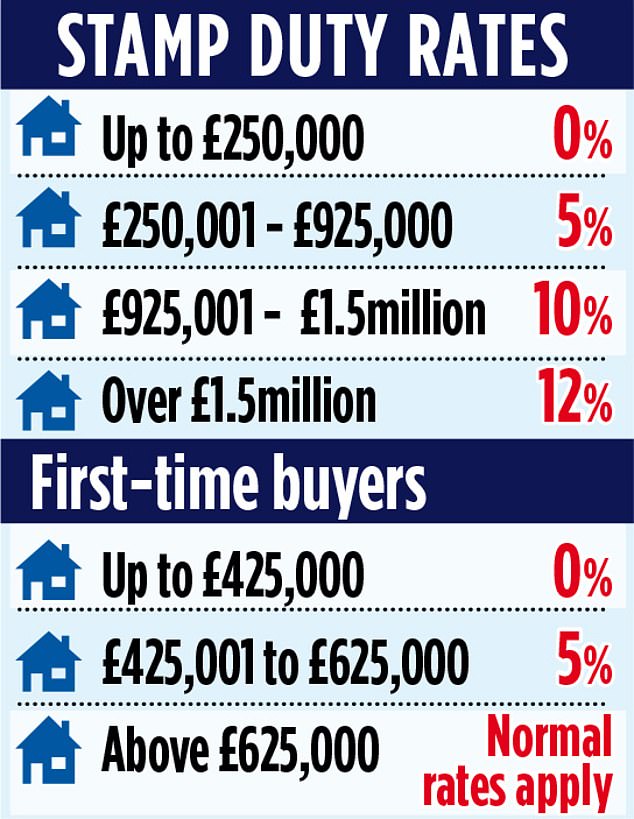- Housing market has been hit by surging interest rates, pushing up moving costs
- Taylor Wimpey, Barratt and Berkeley say stamp duty cut would help
Three of Britain’s biggest housebuilders have called for Chancellor Jeremy Hunt to cut stamp duty on property purchases in the Spring Budget to ‘unlock’ the UK’s housing supply and boost the economy.
Jennie Daly, head of FTSE 100 builder Taylor Wimpey, said in an exclusive interview with The Mail on Sunday that there was a ‘real case’ for reducing the levy on lower-priced properties and for sellers over the age of 60 who were looking to downsize.
Her comments were echoed by the chief executives of Barratt Developments and The Berkeley Group.

Bricks and mortar: The Berkeley Group boss Rob Perrins believes that the supply of housing is still the ‘key issue’
Pressure on the Government to reduce stamp duty comes after the housing market has been hit by surging interest rates which have pushed up mortgage repayments and rents at a time when household budgets have been squeezed by the cost of living crisis.
Many aspiring homebuyers have found themselves priced out of the market by prohibitive mortgage costs and deposit levels – although there are hopes that the situation is starting to improve.
Speaking to The Mail on Sunday, Daly said reforming stamp duty could help address the problem of ‘overcrowding at the lower end of the market and under-occupation at the top’.
She said: ‘House moves drive the economy. Mobility is fundamentally important for a healthy economy.
‘When that is made harder because there is a tax such as stamp duty or a lack of availability of homes, then you start to constrain the economic options of the individual and the economy. We have to look at the dampening effect that stamp duty has.’
Property purchases of less than £250,000 do not incur stamp duty, but it is charged at 5 per cent of the next £675,000 of homes from £250,001 to £925,000. It rises to 10 per cent after that to a top rate of 12 per cent on the portion above £1.5 million.
First-time buyers do not pay stamp duty on properties under £425,000 and face a charge of 5 per cent on the portion of homes between £425,001 and £625,000.
Rob Perrins, the boss of housebuilder The Berkeley Group, said stamp duty cuts ‘would help with consumer demand’ and encourage more people to move.
But he stressed that the supply of housing was still the ‘key issue’ and reiterated the company’s calls for ‘targeted cost-neutral tax incentives’ for construction on brownfield or post-industrial land.
David Thomas, chief executive of Barratt Developments, said the Chancellor should use next month’s Budget to ‘support young families to get a foot on the ladder’ as well as to ‘incentivise downsizing’ to boost housing sales and make ‘more efficient’ use of existing stock.

MJ Gleeson, a provider of low-cost housing, also backed calls for changes to stamp duty.
Boss Graham Prothero said removing or lowering the levy would ‘help to stimulate confidence and activity in a very tentative market’.
Builders hope for revival of pandemic housing boom
The builders hope reform will help revive a housebuying boom triggered during the pandemic after Rishi Sunak introduced a stamp duty holiday while he was Chancellor.
The policy – which meant stamp duty stopped applying to properties costing less than £500,000 – kickstarted demand after the housing market came to a standstill during Covid lockdowns. But the measure was criticised for pushing up prices and driving away younger first-time buyers.
Former Housing Secretary Robert Jenrick last month dubbed stamp duty ‘one of the most counter-productive and anti-growth taxes’ and said it ‘damages productivity’.
He called for a cut in stamp duty and said this would provide ‘a much-needed stimulus to the economy’.
Sir Nigel Wilson, the former boss of financial services giant Legal & General, wrote in October that stamp duty should be removed or reduced for ‘older people who want to downsize’ in order to ‘free up housing for younger generations’.
He added that making downsizing cheaper would also ‘release cash’ that could then be used to ‘support family members such as grandchildren and help the next generation on to the housing ladder’.
Data released last week by the Office for National Statistics showed house prices slipped by 1.4 per cent last year as surging mortgage rates weighed on demand.









